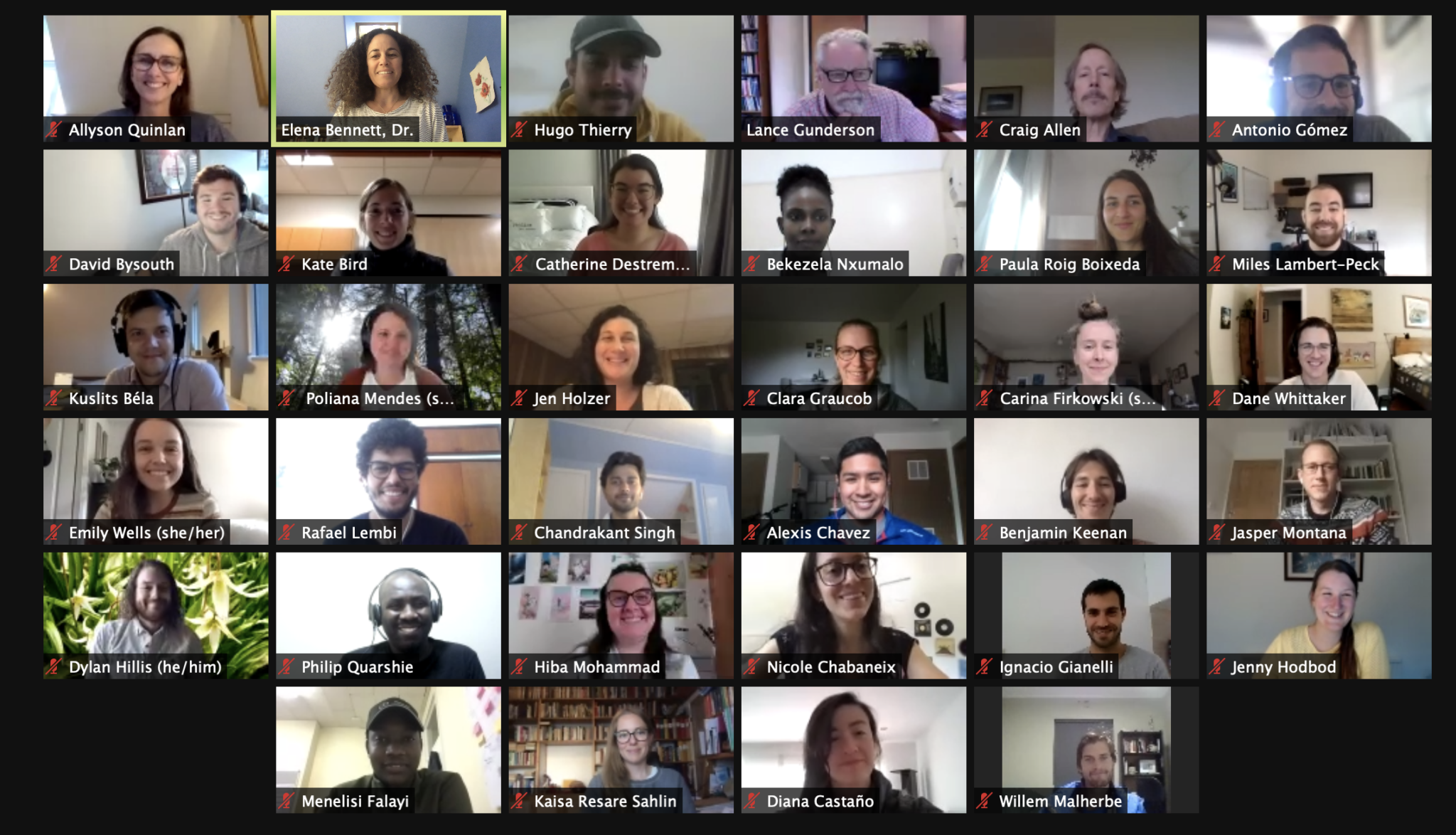The first Resilience Alliance short course was held online from 24-28 May 2021. The course was organised in collaboration between the Resilience Alliance, a research organisation focussed on resilience in social-ecological systems as a basis for sustainability, and NSERC ResNet, a network for monitoring, modelling, and managing Canadian ecosystem services for sustainability and resilience. The event is planned to occur annually and the theme for this year’s iteration was titled: Resilience Foundations from Theory to Practice. The purpose of the course was to provide students and early career researchers with an opportunity to draw on the expertise of scholars in the RA network, many of whom helped to formulate the initial conceptualisation of resilience and continues to advance its conceptual and operational development, while also facilitating collaboration between a broader network of students and researchers.

Participants convene at the online Resilience Alliance short course.
Two PhD students from the CST, Bekezela Nxumalo and Willem Malherbe, were successful in their applications to attend the short course. There was a total of 28 post graduate students and post-doctoral researchers in attendance, who represent a diverse group of individuals from countries like Peru, Hungary, Ghana, Germany, the US, Sweden, Canada, and many others.
The course was held online, and each day was broken into two sessions: one dedicated to a lesson and the other to an activity involving the material covered in the lesson. Sessions were run by world-leading experts in the resilience and sustainability arena, one of which was the CST’s Professor Oonsie Biggs. Participants were required to prepare by viewing pre-recorded lectures and readings prior to the day’s sessions.
“Resilience is so broad and may mean different things depending on who is investigating and what is being investigated”, said Bekezela. She continues: “The plurality in resilience definitions call for the need for transdisciplinary research. We cannot understand the whole system by looking at the parts but by understanding how these different parts function and influence each other at different scales.
While the seven principles of resilience provide a theoretically grounded framework by which to evaluate resilience as an emergent property of a system, applying these principles is not always easy.
“It’s easy to be interesting, but it’s much harder to be useful”. There is need to operationalise the seven principles of resilience in different social-ecological systems which is what I will be focusing on in my research.”
“What I found fascinating during the course, was the different, yet related views about resilience and social-ecological systems approach in different fields. The course was well-structured, the lectures engaging and the discussions thought provoking.”
Willem had the following to say about the course: “We were asked to keep our videos on for the duration of the call, which contributed to a lively, engaging and informative environment. As the course progressed, faces soon became familiar and making contributions in discussions became easier. By frequently going into breakout groups to discuss and reflect on the material being covered, we broadened our understanding of resilience concepts by viewing it form the differing perspectives of others. This ensured that learning was not just achieved in a top-down manner, but also by incorporating the reflections of our peers and using that to shape our own understanding.”
“Above and beyond the valuable learning exercise that this course provided, it was also a great opportunity to engage with our peers and facilitators in a relaxed environment, who are different in many ways but unified by the concept of resilience and our desire to make the world a better place. In that sense, the course enabled us to learn more about each individual and their work interests and has created greater awareness of the resilience landscape amongst this cohort of future researchers.”

